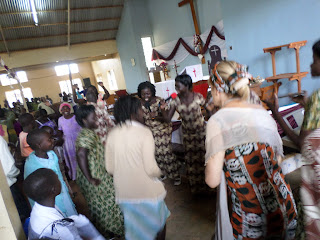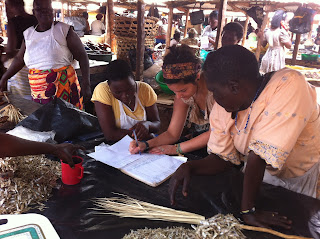AIDS is a huge epidemic in Africa. Furthermore, Uganda has
the 10th highest occurrence in the world, with more than 6% of
adults having been identified with AIDS. AIDS is a killer!
AIDS can be transmitted from mother to child during
pregnancy, through sexual intercourse, and by blood transfusion. Fortunately,
there are several preventative measures that can be made. Currently, in many
African countries, an HIV/AIDS test is required before a marriage can take
place. The simple act of using protection during intercourse can also prevent
the spread of the infection. Ultimately, awareness of the severity and
prevalence of the infection will be the most effective measure.
AIDS, AIDS, AIDS
Why are you killing
us day and night?
You are leaving
orphans all over the world.
AIDS, AIDS, AIDS
Because of you,
people drop out of school.
Because of you,
families are separated.
Why will you not let
us free?
AIDS, AIDS, AIDS
The poem above was being taught to a K2 classroom at St.
Jude Orphanage and Nursery School, where I have been interning. The students in
this class are all four or five years old. In my opinion, AIDS is a very heavy
topic to be teaching to such young children. However, as previously mentioned,
it is very important to educate the Ugandan population on the severity of AIDS
as a way of prevention. This means starting at the very young age of four. At
four, the awareness will only include hearing the name of the infection and
understanding that it is bad. As the child grows older, they will begin to learn
more about the effects of AIDS, how it is spread, and how it can be prevented.
While many of the children in this class are from the
surrounding community, some are also orphans. Many of these orphans may have
lost their parents to AIDS, making this awareness even more prominent.
Facts have been derived from the World Health Organization
via a lecture by Justin Hendrix and Amanda Reinke as well as from http://www.avert.org/africa-hiv-aids-statistics.htm.







































